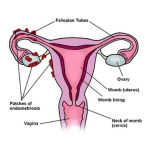Do you experience pain in your lower abdomen quite often? Is it mostly to the right side? Has your abdomen bloated up? If you are experiencing any of these signs, then it’s bad news for you. These symptoms indicate that you have appendicitis. What is it exactly? Appendicitis is the condition where your appendix swells up and leads to fatal circumstances if left untreated. To correct the disorder, you either need to surgically remove the appendix, or reduce the inflammation using very strong antibiotics.
The appendix is a band of tissues forming a tube-like structure, with a length of 3 and a half inch. It extends from your larger intestine. There is not much important role that this organ plays in your body. Therefore you can easily survive without an appendix, with no serious consequences to worry about.
Table of Contents
What is appendicitis?
When you are suffering from appendicitis, the best thing to do is to remove it surgically. Appendicitis is one kind of a medical emergency, which you need to treat immediately to avoid any further health threats. When you fail to treat appendicitis at the right time, your appendix will keep inflaming further. Gradually it will lead to a state where it can easily burst, spreading various infectious components into your abdominal cavity. Such activity can lead to a condition called peritonitis (inflammation of the peritoneum or abdominal cavity), which can prove to be lethal.
What is an abscessed appendix?
Before understanding abscessed appendix, you need to know what abscess is. An abscess is an infection that walls off from remaining part of your body. Sometimes pus may be formed within abscess, forming a film surrounding the appendix. The wound tissue then walls off your appendix from your abdomen, which prevents the spreading of infection. However, the abscessed appendix can perforate or burst, leading to peritonitis. This is the reason why you should never leave appendicitis untreated, to protect yourself from fatal consequences.
Causes of appendicitis
You suffer from appendicitis due to very peculiar factors. The major reason behind the disorder is that your appendix gets blocked, which can be because of:
- Hard or constipated stool
- The entrance of infection or foreign body
- Cancer
Possible symptoms
Few of the classical signs of appendicitis have been listed below for your convenience:
- A typical dull pain or soreness near your navel region (upper abdomen). Gradually you start feeling very sharp pain, as you move down towards the right side of your lower abdomen. This is the primary symptom of appendicitis.
- You will not feel hungry, which will further contribute to the loss of body weight.
- With the beginning of abdominal pain, you start feeling nauseous.
- High fever with body temperature, ranging from 99 to 102 Fahrenheit.
- Difficulty in passing gas.
- Overall inflammation of your abdomen.
About 50 percent of the other signs of appendicitis starts appearing gradually.
- Dull or steeping pain in both the upper and lower abdomen, extending to your back and rectum.
- Extremely painful cramps.
- Feel severe pain and discomfort during urination.
- Vomiting due to excessive pain in the abdomen.
- Diarrhea or constipation that is accompanied by gas.
If you are facing any of these symptoms, immediately contact your doctor for medical attention. It is very important that you diagnose and treat appendicitis at the right time. Avoid drinking or eating any food items that contain laxatives, using remedies for pain relief, antacids or heating pads. These factors may easily contribute to rupture of your inflamed appendix.
How to diagnose appendicitis?
Diagnosing appendicitis is a very tricky affair. This is because the signs of appendicitis are very close to other ailments of your digestive tract, such as:
- Gallbladder associated issues
- Irritable bowel syndrome (IBS)
- Crohn’s disease
- Infection of the urinary tract or urinary bladder
- Gastritis
- Problems related to ovary
Certain tests that can specifically help you identify appendicitis are:
- Examination of rectum
- Ultrasound or CT scan
- Urine test for identifying infections in the urinary bladder or tract
- Examination of the abdomen for detecting inflammation
- Certain blood tests to check whether your body is combating any infections or not
Treatment for appendicitis
The safest and standard treatment that your doctor will propose in case of appendicitis is appendectomy. The procedure involves surgically removing of appendix so that there is no threat of rupture and infection in your body. However if abscess forms around your appendix, you need to undergo two different procedures.
- One treatment will ensure that the abscess drains all the flow fluids and pus.
- The other treatment involves the removal of your appendix surgically.
If you are in the initial stages of appendicitis, the doctor may prescribe you some strong antibiotics to treat appendix.
What to expect from an appendectomy?
Before appendectomy, you will be given antibiotics to fight and reduce inflammation of the peritoneum (peritonitis). Next, the doctor will perform general anesthesia on you before the surgery begins. The surgeon can either remove your appendix with the help of laparoscopy or through a cut of about 4 inches. In case you still have peritonitis, the surgeon will irrigate or drain out all the pus from your abdomen.
Do not be scared thinking how long you have to bed rest after the surgery. With the advancement in science and technology, no surgery is gravely difficult nowadays. You can easily move and walk around within 12 hours of appendectomy. To resume your casual daily activities, you need to wait for 2 to 3 weeks.
However, if you face the following symptoms post the surgery, instantly call up your doctor:
- Blood in urine or vomit
- Uncontrolled vomit
- Feeling of dizziness
- Fever
- Presence of pus in wounds
- A gradual increase in redness and pain at the site of incision
- Increasing abdominal pain
Prevention
There is no particular way by which you prevent appendicitis. However, certain changes in your diet can help you lessen the chances. Go for foods that are very rich sources of fiber, like fresh vegetables and fruits and stay healthy.







